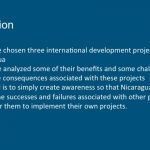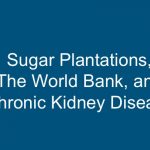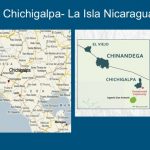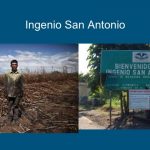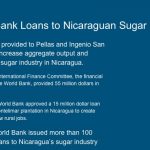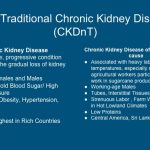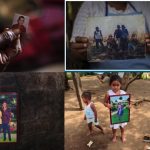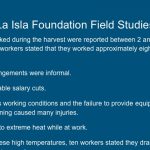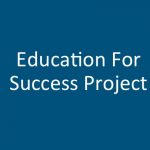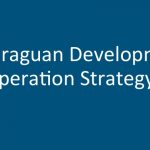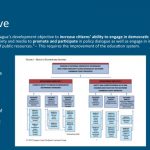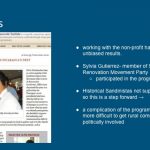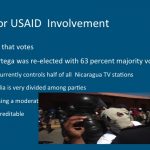The above link is a slideshow outlining my final research on international development projects in Nicaragua. International Financing Institutions, Non-Governmental Organization, and United States development contractors have all had an active presence in Nicaragua. However, as is the common question of international development, many debate whether these various organizations have a positive impact on Nicaraguan development. The goal of this study was to analyze the benefits and failures of these projects in improving the living standards of working-class Nicaraguans. This research focuses on three distinct development projects:
(1) World Banks monetary loans to Ingenio San Antonio, the largest sugar plantation in Nicaragua. This project provided the Nicaraguan sugar industry with the support it needed. More people were able to work for the expanded sugar plantations. However, the World Bank provided loans to a plantation where non-traditional Chronic Kidney Diseases has become an epidemic. The disease accounts for half of deaths amongst working age males in Chichigalpa, Nicaragua; where the sugar plantation is located. Despite worker protest, the World Bank still provided loans to expand Ingenio San Antonio. The project is a sober reminder of the indirect consequences of inherently good development initiatives.
(2) The United States Agency for International Development’s (USAID) Education for Success Project. The Main goal of the Education for Success (EFS) Project is to develop and implement programs for at risk youth in the (RAAS). The Project was launched in 2010 as a seven-year, 6.7 million dollar effort by_. In September 2013 USAID requested a third-party to conduct a mid-term evaluation of the project. The evaluation found that EFS has been successful in generating youth development opportunities in the RAAS, where the education infrastructure development is not subsidized on the national government level.
(3) USAID’s Nicaraguan Democratic Leadership Development Program. USAID/Nicaragua’s development objective to increase citizens’ ability to engage in democratic governance will allow civil society and media to promote and participate in policy dialogue as well as engage in improving the governance of public resources. While the project aims to bridge education gaps, address issues of local “machismo” culture, and remain un-bias to Nicaraguan media, the US funding may be seen as having an impact on governances. The organization partnered with the National Democracy Institute since 2010 to train the next generation of leaders with a budget of 12 million dollars.


